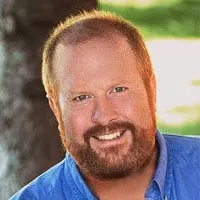(Reuters) – The fate of South Korean President Yoon Suk Yeol is in the hands of the country’s Constitutional Court after parliament impeached him on Dec. 14 and suspended his powers over his short-lived martial law on Dec. 3.
The justices on the Constitutional Court, who must decide within 180 days whether to remove Yoon from office, have not always voted in the past based on perceived political leanings.
The court should have nine justices, but the appointment of three new members has been held up by political infighting. Parliament voted in favour of three nominees on Thursday, but they have yet to be formally appointed by acting President Han Duck-soo.
Here are profiles of the six current justices:
MOON HYUNGBAE
Moon, 59, is currently acting chief justice of the Constitutional Court.
Appointed by former President Moon Jae-in, he is viewed as holding liberal views.
He was previously a high-ranking judge at Busan High Court and head of the family court in the port city.He has backed some minority opinions in his role on the court, including finding unconstitutional laws punishing sexual activity between same-sex soldiers.
In May, Moon also expressed a minority opinion upholding the impeachment of a prosecutor.
Moon’s six-year term expires in April 2025 and legal experts have predicted the court may seek to rule on Yoon’s impeachment before his and another justice’s terms expire.
LEE MISON
Lee, 54, was one of the youngest justices appointed after also being picked by Moon Jae-in, with her term expiring in April 2025.
Before her appointment, she was known as a labour law expert and has been a sitting judge overseeing trials for roughly two decades.
She is viewed as holding liberal views.
Lee joined Moon in voicing minority opinions in the two cases above.
KIM HYUNGDU
Kim, 59, was nominated by former Supreme Court Chief Justice Kim Myeong-su. His six-year term began in 2023.
He is viewed as a capable judge with wide-ranging experience in various laws as well as court administration.
Kim was the first judge to establish the legal principle that a 1975 emergency presidential measure that made possible arrests without warrants or subject to judicial review was illegal, and victims could be compensated by the state, according to local media.
Since joining the Constitutional Court, Kim has mostly ruled with the majority, including overruling the impeachment of a prosecutor in May.
JUNG JUNGMI
Jung, 55, was also nominated by former Supreme Court Chief Justice Kim Myeong-su. Her six-year term began in 2023.
The sixth woman to be appointed to the court, Jung is viewed as not leaning in any particular political direction, with strengths in dispute resolution and applying legal principles flexibly.
She found unconstitutional the law punishing sexual activity between same-sex soldiers, but agreed with the majority opinion on an alternative for conscientious objectors to maintain the current military system.
In the May decision on the impeachment of a prosecutor, she sided with the minority to uphold the impeachment.
CHEONG HYUNGSIK
Cheong, 63, is the sole Constitutional Court justice appointed by Yoon. His term began in 2023.
He served previously as head of the Seoul Rehabilitation Court and on the high court in Daejeon. He is viewed as conservative.
In a 2013 trial of a case involving a former liberal prime minister charged with receiving illegal political funds, Cheong overturned a lower court ruling and gave a two-year prison term.
In 2018, Cheong overturned a lower court ruling in a case involving Samsung Electronics Chairman Jay Y. Lee and gave him a suspended sentence. Lee was charged with bribery in connection with impeached president Park Geun-hye.
For Yoon’s trial, Cheong was randomly picked as the main justice in charge, according to local media, garnering criticism from the opposition Democratic Party.
However, the court said the role will not affect the direction or pace of the trial and legal experts said it will likely be mainly related to procedural matters.
KIM BOK-HYEONG
Kim, 56, was nominated by current Supreme Court Chief Justice Cho Hee-dae.
Her term began in September this year, and Yoon’s trial will be her first high-profile case at the court.
When asked about the punishment of homosexuality in the military during her nomination hearing in parliament, she said people’s basic human rights should be guaranteed.
(Reporting by Joyce Lee in Seoul; Editing by Ed Davies and Jamie Freed)







Comments